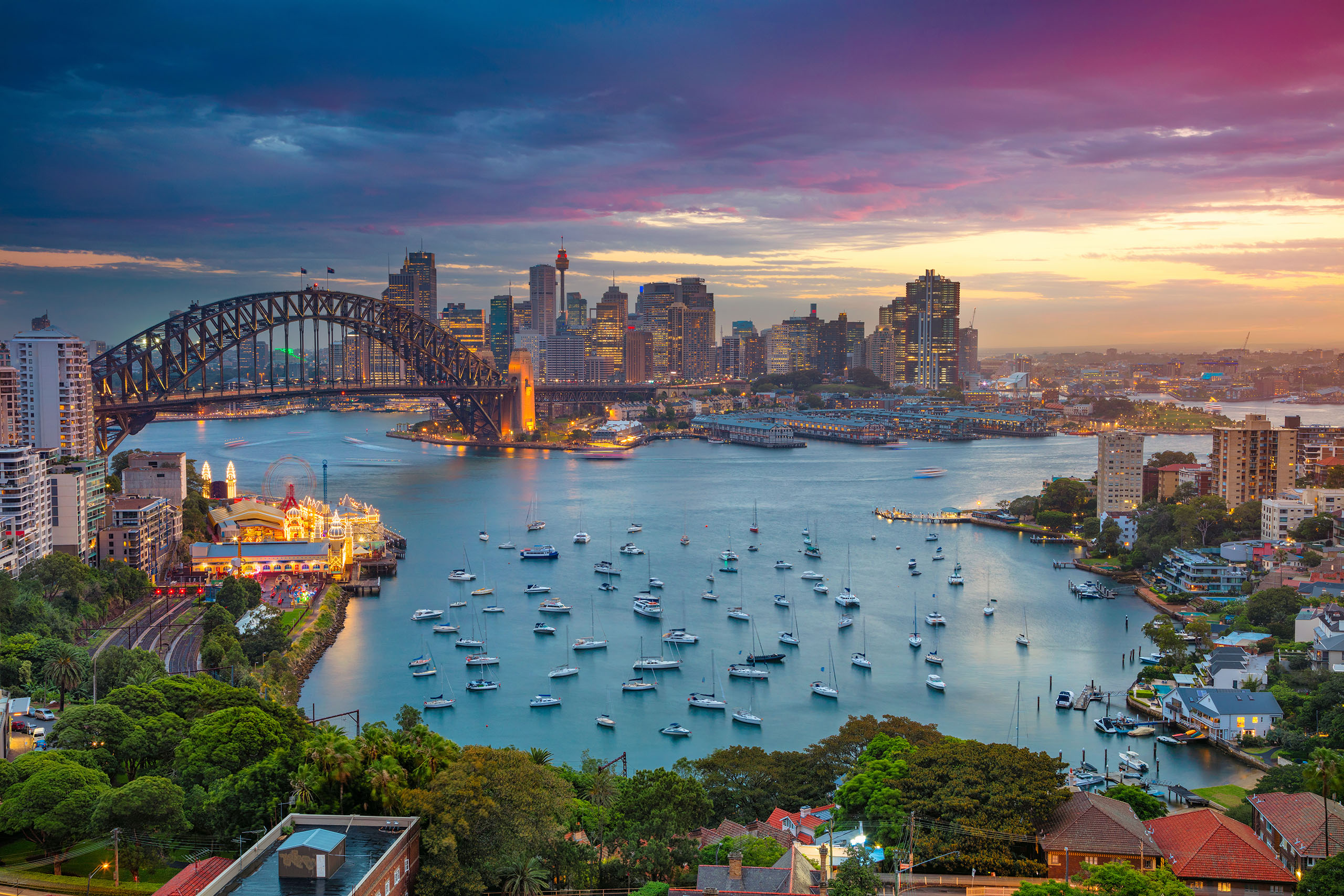Study Destination services
Australia



Overview
After studying in Australia, there are now more than 2.5 million international students who have graduated and then returned to their country or traveled the world to make a difference. It is not difficult to live and study in this stunning country.
Diverse delicacies from various countries and fresh natural produce are available here all year round. High-quality and easily accessible modes of public transportation make traveling in the country comfortable. Shopping options are no less interesting, from traditional markets to modern shopping centers in the middle of the city.
Study in Australia with Futureminds
FutureMinds guide you through every step of studying in Australia. From choosing the right course and university to handling applications and visa requirements, our expert consultants provide personalized support. With offices in multiple countries and deep knowledge of Australian education, we ensure a seamless journey towards your academic aspirations. Let Future Minds be your partner in achieving educational success in Australia.
Education Information
- Why Australia
- Fact & Term
- Education System
- Australia is one of the English-speaking western countries, located closest to Indonesia
- The geographical location of Australia is relatively close to Indonesia with varying climate conditions. The climate in some cities is not much different from the climate in Indonesia
- A modern country that has many interesting and beautiful sights
- Stable social and economic conditions
- Multi-cultural society and culture
- The quality of education is high and internationally recognized
- Comfortable and secure living and learning environment
- International students receive special protection in Australia (from ESOS Act), which guarantees the quality assurance and international reputation from every educational institutions in Australia, as well as protection on educational expense. This protection applies to all sectors of education and training in Australia
- Competitive tuition fees
- Student can apply for a part time work permit of 40 hours per two weeks
- Student with Post Study Work Visa may work within two (2) years after graduated from their bachelor / postgraduate study
- Special service is provided by Australian institutions for international students
The Australian government issued regulations for international students who are under 18 years old. Parents or guardians are required to regulate the provision of shelter and the welfare of the student prior to his departure to Australia, as well as report to the host institution.
1. Student Visa & Health Insurance (CRICOS & ESOS ACT)
Commonwealth Register of Institutions and Courses for Overseas Students (CRICOS) is a list of all the course providers and institutions that are allowed to accept international students. Students who want to register for the learning period of more than three (3) months need to obtain a student visa (student visa) Australia. Student visas are issued only to registered courses in CRICOS. The duration of student visas granted is in accordance with the duration of the program adopted.
All of these are covered in the Education Services for Overseas Students (ESOS) Act-laws that protect international students in any way for the quality assurance of education in Australia and the refund of school fees if the institution cannot fulfill its obligations.
In August 2005, the Department of Immigration & Multicultural & Indigenous Affairs (DIMA) Australia introduced a new type of student visa: “eVisa or Electronic Visa”. DIMIA changed its name to the Department of Immigration and Border Protection (DIBP) in 2014. The application process with eVisa method can be completed within a period which is usually faster and cheaper than the maintenance as usual.
Overseas Student Health Cover (OSHC) must be owned by all Australian student visa holders, which must be purchased from registered health organizations, such as Medibank Private, Worldcare Assist, Faith International, Australian Unity, BUPA Australia etc. Each institution has its own insurance company. Therefore, OSHC is paid along with tuition, that is before students apply for visa and the amount paid includes the total duration of the student’s learning. Students who do not have a student visa because the courses are taken less than three (3) months, are not required to have OSHC, but it is advisable to have travel insurance (travel insurance).
This insurance covers the cost of general practitioners, hospital inpatient care and prescription drugs, eye and dental care is usually not included, then it is recommended that you check it before leaving for Australia.
OSHC cost is around AUD 500 – AUD 600 per year
2. Accommodation
The place and the comfort of the accommodation play an important role in determining whether or not you stay at home in Australia. Therefore, the selection of proper accommodation and in accordance with the needs of each student is one of the main things that need to be considered. The types of accommodation usually occupied by international students in Australia are:
- Accommodation on campus
(On Campus Accommodation)
Many universities have dormitories. Boarding facilities are generally equipped with a bed, a study room, bathroom, laundry, kitchen, as well as a gathering place. Most dorms provide food. On-campus accommodation costs average about AUD 230 – AUD 400 per week. - Rent Apartment or House
International students can rent an apartment or house. The amount of the rent paid vary according to the location, spacious, and the facilities available. Many international students occupy the house or apartment together (sharing). The cost of renting an apartment is AUD 350 – AUD 550 per week. These costs can be saved by inviting friends to stay together so that each tenant only pays half of the cost. - Stay with Australian Family (Homestay)
Homestay is one of the most effective ways for international students to practice English and a good experience to get to know the culture and customs of Australia. Living with a host family provides valuable opportunities to have conversations with them. You can learn more quickly because you are constantly thinking and speaking in English in every situation – a situation that is very practical. You can choose a homestay which includes a meal or just room only. For student who is under 18 years is usually recommended to stay in a homestay in order to get closer supervision from parents. As a guest of a homestay, you are expected to be independent, respectful and willing to cooperate. Homestay fee ranges between AUD 250 – AUD 360 per week (including meals).
3. Part Time Work
At this time, new student visa issued immediately have a limited work permit/limited work condition. International students may work part time more than 40 hours per 2 (two) weeks during college and work full time during the holidays. Especially for students Degree (Postgraduate students), a work permit is granted without maximum time limit.
Besides getting some allowance, employment opportunities will greatly add to the experience, insight, and independence of students. All these advantages can be a good start for entry into the workplace after graduating from the study.
The salary earned during part time work is around AUD 10 – AUD 20 per hour.
1. Primary & Secondary Schools
Schools in Australia are divided into two categories namely public and private schools. Both accept international students and get government funding. Most of co-educational schools types accept male and female students’ with the exception of some private secondary schools. Private secondary schools are usually not co-educational and frequently affiliated to certain religion. There are more than 12.000 international students study in Australian schools.
In general, the length of primary and secondary education in Australia the same as in Indonesia, which is 12 years old. Compulsory education in Australia is up to class 10. Class 11 and 12 referred to as the Senior Secondary class. After graduated from grade 12, students will get a qualified Senior Secondary Certificate of Education from each state; recognized for admission to universities in Australia and overseas.
The tuition fee for Primary and Junior Secondary School ranges AUD 10,000 – AUD 15,000 per year; while the tuition fee of Secondary School around AUD 14,000 – AUD 20,000 per year.
2. English Course (ELICOS)
English Language Intensive Courses for Overseas Students (ELICOS) is an English language training program organized by specialized institution that is around 160 institutions in Australia. University that organizes ELICOS usually recognize the value ELICOS exam in lieu of IELTS™ or TOEFL® which is the university entry requirements. Therefore, students who IELTS™ or TOEFL® under the requirements, it is advisable to take this ELICOS program.
In addition to experienced and qualified instructors, all students can use modern facilities such as language laboratories, video facilities, and a library, as well as computer-assisted learning facilities, etc. Students can enrol for the duration of the study between four (4) to 48 weeks depending on each person’s needs.
ELICOS costs for an average of around AUD 300 – AUD 450 per week.
- Requirement to Register
Students are required to have a good level of English and the measurement can be seen from the IELTS™ or TOEFL® score. In addition, the academic value is required as a condition of receipt of students both at school and at university. For Postgraduate level, the capability to do research or working experience in the field will also be considered for entry.
3. Vocational Education & Training (TAFE and VET)
A kind of polytechnic vocational study program known as Technical And Further Education (TAFE) owned by the government, and Vocational Education & Training (VET) private or also called College.
The graduates from this vocational education obtain qualification under the Australian Qualification Framework (AQF) *, such as:
- Certificate I
- Certificate II
- Certificate III
- Certificate IV
- Diploma
- Advanced Diploma
This qualification can be used to pass on to the Bachelor level S-1 (Bachelor Degree) or directly step into the career world.
Cost of vocational education revolves around AUD 10,000 – AUD 27,000 per year.
*AQF is a national system that provides a detailed guide to all the qualifications and level of education in Australia, to ensure control of the quality of education offered in all states for all students including international students. AQF has a list of accredited government agencies, universities approved, educational institutions and vocational training.
4. Pre-University Program (Foundation Studies)
Pre-University Program (Foundation) is an intensive preparatory course of study as a base and a bridge that prepares students for entry into university, with duration of six (6) to 12 months. Pre-University Program (Foundation) is divided into several fields of study, such as business, sciences, and arts & design, as well as the media and social sciences.
The fee for Pre-University Program (Foundation) ranges between AUD 20,000 – AUD 32,000 per year.
5. Professional Degree Program (Undergraduate Degree)
Australia has 37 public universities and two (2) private universities. All universities offer an attractive learning environment and high-quality qualification. In 2015 there are more than 215,000 international students from 180 countries studying in Australian universities according to Austrade.
Most Australian universities offer a combination of various fields of study, so that students can get more than one qualification (Double Degree). In the final year of a degree program, students with good achievements will be offered to add one (1) year of study to get an honorary degree (Honours). When graduated with satisfactory (First Class Honours), the students have the opportunity to directly proceed to the doctoral program, so that the study period can be shortened.
Every Australian university has its strengths and its own field of specialization, giving students a wide choice and access to the latest technology and research in their chosen field. Education systems are very focused on the importance of developing the ability to think creatively and independently.
Internationalization of higher education and research are of great importance and Australian universities are major participants in educational and research projects as well as international ideas.
The tuition fee at the university for the course is based on category. The non research laboratories / Non-Lab Degree (Arts, Business, Economics and Law) typically ranges between AUD 21,000 – AUD 34,000 per year. As for Lab Degree (Science and Engineering) around AUD 23,000 – AUD 35,000 per year. Medicine program specifically for college expenses ranging between AUD 55,000 – AUD 66,000 per year.
6. Professional Graduate Program (Postgraduate Degree)
Graduate Program consists of a Graduate Certificate (6 months), Graduate Diploma (1 year), Master Degree (1-2 years), and Doctoral Degree (3-4 years). Master Degree in stages, students will be asked to make a thesis (thesis); whereas at this stage of Doctoral Degree, students will be asked to complete a dissertation of research.
Tuition for Postgraduate program (Graduate Certificate, Graduate Diploma and Master) ranged AUD 25,000 – AUD 34,000 per year.
University Partners
- Australian Catholic University, Sydney
- Blue Mountains International Hotel Management School - Torrens University, Sydney
- Bond University, Gold Coast
- Macquarie University, Sydney
- Monash University, Melbourne
- RMIT University, Melbourne
- The University of Newcastle, Callaghan
- The University of Queensland, Brisbane
- The University of Sydney, Sydney
- The University of Western Australia, Perth





